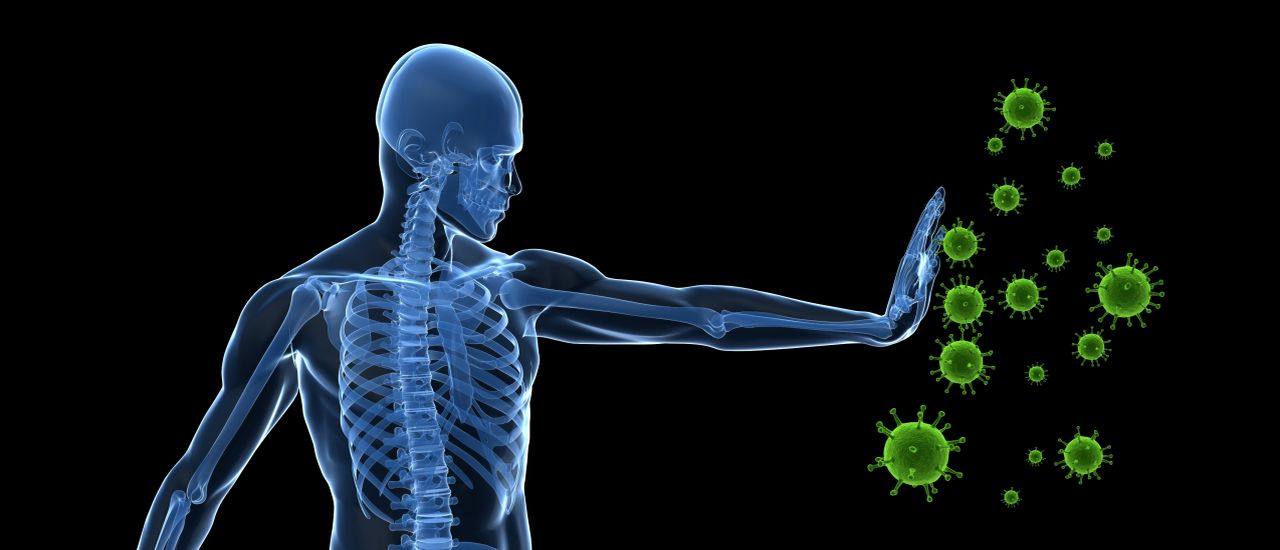Probiotics are combinations of microorganisms that have been demonstrated or suspected to have beneficial effects when consumed, including inducing immune responses and accelerating the healing of various digestive disorders, both acute and chronic, based on previous studies. Probiotics increase the induction of the immune response of epithelial cells, dendritic cells, monocytes/macrophages, and lymphocytes (B lymphocytes, NK cells, T cells). Explaining the mechanism of multiple species of probiotics against the activation of innate immune responses through the role of dendritic cells and NK in healthy rats experiencing gastrointestinal damage caused by lipopolysaccharides (LPS) is the purpose of doing this research.
A total of 24 Balb/C white male rats aged 10 – 12 weeks with a bodyweight of 30 – 40 grams were divided into four research groups. Group I are mice that get probiotics – lipopolysaccharides (LPS), group II and III are mice that only get LPS only and probiotics. In contrast, group IV is a control group without intervention. Probiotics are administered for 21 days using a combination of Lactobacillus acidophilus PXN 35, L. casei subsp. casei PXN 37, L. Rhamnosus PXN 54, L. Bulgaricus PXN 39, Bifidobacterium breve PXN 25, B. Infantis PXN 27, and Streptococcus Thermophilus PXN 66. Lipopolysaccharides (LPS) are given only one day i.e. on the 15th day.
The results gained in this study were the average number of dendritic cells in a group that gained only a significantly higher probiotic than the control group (8.67 ± 2.07 compared to 6 ± 1.41). The average number of higher dendritic cells is also significantly produced by groups that get LPS with probiotic supplementation versus a group that is only exposed to LPS (8.83 ± 1.72 versus 3.5 ± 1.05). Unlike dendritic cells, the average increase in the number of NK cells also occurs in these groups, but the increase is not significant.
The innate immune response to the probiotic group, as determined by the number of dendritic cells, increases significantly compared to the control group. It shows that the administration of probiotics enhances the innate immune response and is consistent with the theory stating that the symbiotic stimulate the innate and adaptive immune response in the mucosa. Communication occurs between the probiotic bacteria as normal flora and the body’s immune system where probiotics are potential immunomodulators that increase the amount and intensify dendritic cell maturation as the presenter cell antigen (Antigen-presenting cell) and “induce” T cell differentiation based on the composition of the intestinal microflora.
An increased innate immune response characterized by an increased number of dendritic cells significantly also occurred in the probiotic group – LPS, compared with LPS only groups. LPS will induce an inflammatory response in healthy mice, as demonstrated by the innate factor response and adaptive immune system. The absence of a probiotic Paparana in the LPS group alone will cause low congenital immune responses due to no increased activation and dendritic cell count. The most noticeable anti-inflammatory effect was demonstrated by Bifidobacteria species, with increased production of interleukin (IL)-10 by dendritic cells and decreased expression of CD80 and CD40.
The NK cell increased despite not being signed in this study. The influence of probiotics against NK cells is still controversial. Some research on rats and humans mentioned that the activity of NK cells increased after administered probiotics B. Lactis HN019, Lactobacillus casei ssp., L. Gasseri, and L. Coryniformis. The addition of L. Casei Shirota shows different results that there is no influence on the activity of NK cell.
The difference in the species used in the research can explain the differences in the results obtained in the previous study. The conclusion that can be taken from this study is that multiple probiotic species can affect the innate immune response of the Bal/C strain rats through dendritic cells. Further studies are still needed to determine the strains and dosages of the most effective probiotics to stimulate the NK cell. (*)
Author: Andy Darma
Link
http://chimie-biologie.ubm.ro/carpathian_journal/Papers_11(5)/CJFST11(5)2019_4.pdf





